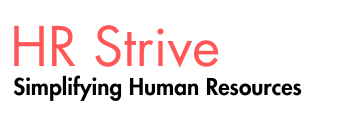Inclusion
Diversity addresses the question, “Who do we bring into our organization?” Inclusion, however, focuses on “How do we ensure they feel welcomed, valued, and empowered once they are here?”
According to the Society for Human Resource Management (SHRM), inclusion is defined as “the extent to which each person in an organization feels welcomed, respected, supported, and valued.” An inclusive organization fosters an environment where all individuals are encouraged to contribute and are empowered to fully engage in the organization’s mission. Such organizations actively seek out, welcome, and value diverse perspectives.
True inclusiveness is achieved only when the organization creates a culture that recognizes and appreciates the unique talents, skills, and perspectives of every employee. By cultivating this environment, organizations promote collaboration, adaptability, and fairness in the workplace.
Inclusion is not only a moral and cultural imperative but also a strategic advantage. Organizations that prioritize inclusion are better able to attract, recruit, and retain talent, as individuals are more likely to be drawn to workplaces where they feel recognized and valued. Put simply, diversity becomes the natural result of authentic and sustained inclusion efforts.
Equity
Equity seeks to answer the question, “How do we ensure that everyone has the opportunity to contribute to their fullest potential?”
It is important to distinguish the specific meaning of equity in a workplace context, as the term has multiple interpretations across different business domains:
-
In finance, equity typically refers to ownership.
-
In compensation, equity relates to the fair distribution of total rewards.
-
In hiring and employment, equity means providing tailored support and resources to individuals who may require additional assistance to fully access and benefit from available opportunities.
A common misconception is the interchangeable use of "equity" and "equality." While both aim to promote fairness, they are distinct concepts that HR professionals must understand. Equality ensures that all employees have the same rights and opportunities and are treated fairly. Equity, on the other hand, involves recognizing and addressing systemic barriers and demographic-specific challenges by incorporating targeted strategies into organizational decision-making and diversity, equity, and inclusion (DE&I) initiatives.
The objective of equity is to empower all employees by breaking down barriers and providing the necessary support to help them perform at their best. Organizations can promote equity through various strategies, including pay equity, workforce education and development programs, skills-based hiring and promotions, and more. For instance, an organization seeking to foster workplace equity might offer targeted training programs to help underrepresented employees navigate and address potential biases in professional interactions.

No comments:
Post a Comment